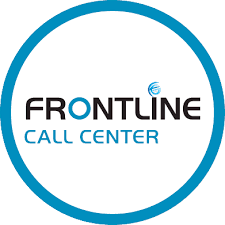As Your Wealth Grows, Think Beyond Your Balance Sheet
Acquiring wealth is the first step in building a family wealth enterprise, but only just the beginning. Having access to information that helps you manage the complexities of that wealth and avoid future costly mistakes is critical to long-term success.
While many wealthy individuals and families understand investment reporting, which covers the balance sheet side of their wealth—where capital is invested and how their portfolio is performing—many underestimate the need for detailed financial reporting, which includes income, expense, and cash flow reporting. Failing to focus on all aspects of your financial affairs may expose you to unintended risks and limit your ability to capitalize on opportunities as they arise. “Among other things, financial reporting includes the process of reconciling a family’s numerous bank accounts, credit card statements and brokerage accounts, so that income and expenses are recorded correctly. This is not only important for tax compliance purposes, but also supports the process of budgeting, cash flow forecasting, liquidity planning, and overall risk mitigation for the family” says Amy Pienta, Managing Director for BDO’s Family Office Services practice.
Financial reporting and investment reporting are similar, yet distinct sets of information that provide the comprehensive financial intelligence needed to successfully manage and institutionalize significant wealth. When managed effectively, financial and investment reporting provides a holistic, transparent view of your family’s finances and arm you and your advisors with the knowledge needed to make strategic financial decisions.
Financial Reporting vs Investment Reporting
Investment reporting: Investment reporting focuses on aggregating the family wealth enterprise’s value, including total investment portfolio across custodians, private equity firms, banks, etc. This type of reporting can help you understand your total asset allocation and portfolio performance, even if the investments are spread among multiple advisors, private equity funds, and alternative assets. This information can enable you to quickly identify risk exposure (e.g., to regional bank stocks during a crisis), evaluate investment performance against a chosen benchmark, and identify changes to the portfolio that will keep it aligned to your targeted Investment Policy Statement.
Financial reporting: Financial reporting starts with the process of recording all income and expenses for the month, documenting any new sources of funds (e.g., distributions) or liabilities (e.g., intra-family loans), and performing eliminating entries as necessary to produce consolidated personal financial statements across the entire family wealth enterprise, including a balance sheet, income statement, and statement of cash flow. Like investment reporting, financial reporting will often capture the unrealized gains of marketable securities reported on brokerage statements so that FMV is reported on the balance sheet. However, it also tracks the tax basis for marketable securities, alternative investments, and personal assets such as homes, airplanes, artwork, and other investments.
Many wealthy individuals and families focus on investment reporting, but those managing multigenerational wealth should expand their focus to include comprehensive financial reporting for insights and decision-making. Below, we highlight three ways that financial reporting can help improve your ability to manage complex wealth and enable those to answer the number question “who owns what and why?”
Three Ways Better Financial Reporting Can Help You Manage Your Wealth More Effectively
1. Improve your tax planning and enable accurate tax reporting. Regular and robust financial reporting not only can help mitigate unforeseen liquidity issues, but it can also help you respond to information requests by tax jurisdictions and defend your position during state and IRS examinations. It is expected that the frequency of information requests and audits are likely to increase for wealthy individuals in the future, and anyone who has been through the process knows it is a time consuming and costly process. Known targets for challenges include charitable deductions, business expenses, and appraisals (gifts, estates, donations to charity). Documentation including recordkeeping, reconciliations, and general ledger accounting activities that are part of the financial reporting process creates the good hygiene that substantiates an often long and complicated tax return. Having this information at-hand enables you to respond in a timely manner, and with confidence, to tax authorities’ inquiries.
2. Identify potential risks and pitfalls sooner. Attorneys often recommend titling assets in certain trusts and LLCs to protect the family wealth from creditors and future lawsuits. If these structures are not respected; however, it is much easier for plaintiffs to “pierce the corporate veil” by negating the everyday use of such structures and thereby arguing to eliminate the intended liability protection. Proper financial reporting legitimizes these structures by producing a separate set of financial statements for each entity or trust. Furthermore, accounting for each legal entity will facilitate the tracing of assets, liabilities and any related expenditures related thereto. In doing so, the potential for an assignment of a ‘deemed gift’ or ‘deemed distribution’ will be diminished along with the unintended consequence of an unexpected tax liability.
3. Enhance your decision making. As your wealth becomes more complex, the information needed to make informed decisions around funding new investments, estimating quarterly tax payments, budgeting for lifestyle management, and planning for future goals becomes more difficult. Significant net worth does not always mean endless availability of cash. Financial reporting, coupled with robust investment reporting, will help you analyze the totality of your current financial picture, and develop a comprehensive view on the ever-complicated questions surrounding liquidity and cash flow management for wealthy families.
Written by Amy Pienta. Copyright © 2023 BDO USA, LLP. All rights reserved. www.bdo.com



